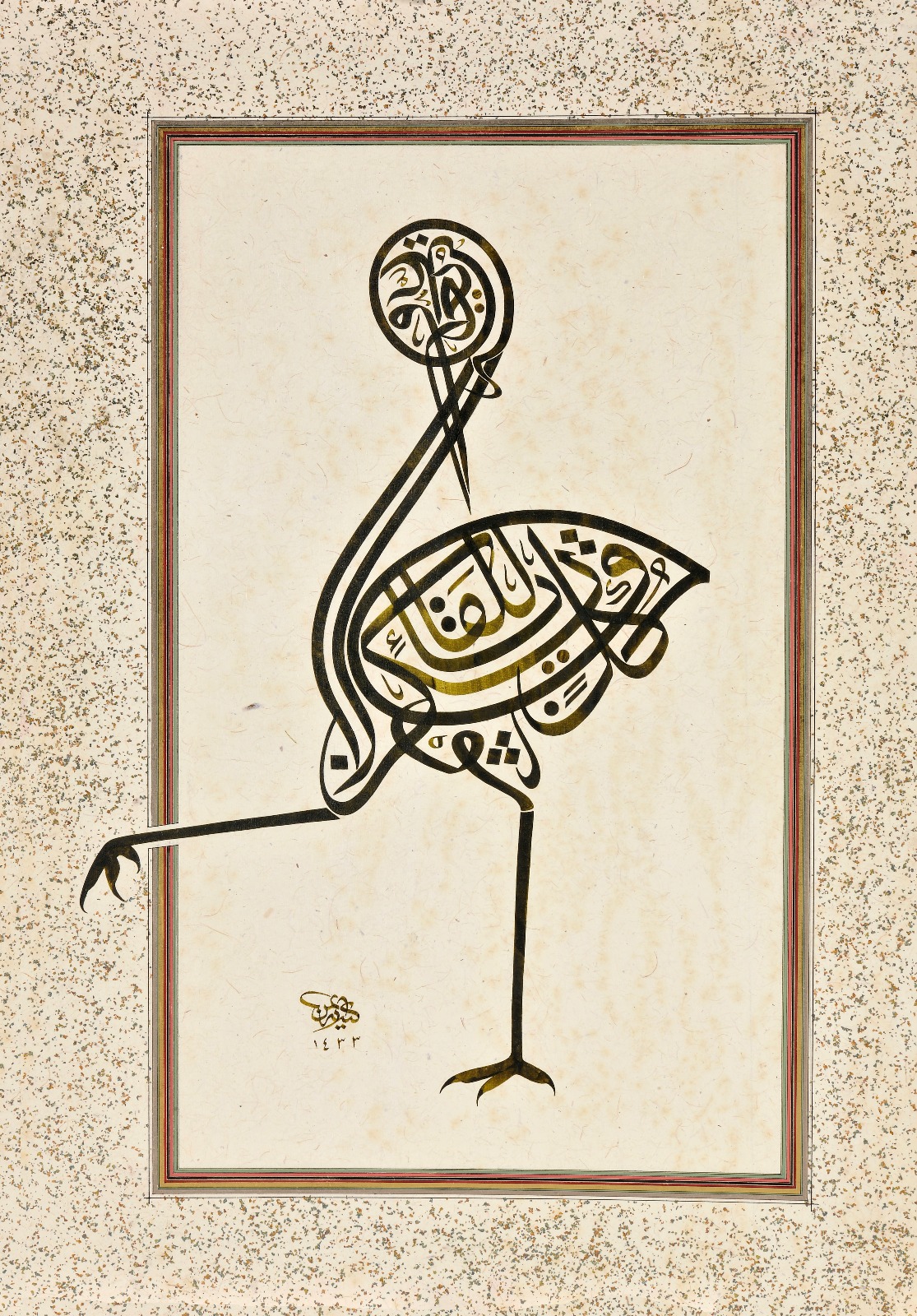Long History of Pluralism, Decentralization, Pragmatism Underpins ‘Arab Culture’ Debate
Calligraphy by Ayman Hassan.
Rarely do we read a cultural or even general-interest publication without encountering discussions questioning whether an Arab culture exists, and if it exists, whether it is in decline. I found no exception when recently perusing Al Jazeera’s online cultural section. We do not need to look far into the article, as its title speaks for itself: “Is There an Arab Culture?” The article is by Dr. Rashid Boutaib, who discusses the decline of the Arab intellectual during and after the Arab Spring.
Boutaib cites French political scientist Jean-Pierre Filiu, who indicates the non-vertical nature of Arab revolutions as seen through the Egyptian and Tunisian cases and their notable lack of leadership, dominant ideology, or an educated class. Boutaib approaches this observation positively, however, noting that the Arab Spring debunked the “Western myths” that Arabs are not capable of democracy.
With the onset of the Arab Spring and the peaceful revolutions, many analysts rushed to debunk the conservative and orientalist notion that democratic change is alien to the Arab world. Filiu’s observations follow a similar vein, albeit modified to account for circumstances that led to the failure of the Arab Spring. He argues for a “cultural transition” as the prerequisite for democratic transition. In the absence of a democratic and societal culture that supports its beliefs, practices, institutions, and democratic values, any desired democratic transition is doomed to fail.
Boutaib says, “Some will argue that building a democratic culture under authoritarian regimes is impossible. Our political lexicon must be developed slightly, as we cannot discuss Arab authoritarianism in the same way as before. Instead, we can say that Arab authoritarianism extends from totalitarian regimes to regimes on the path to democracy, which places us within a vast difference between the former and the latter.” The author does not leave Arab intellectuals off the hook, adding, “Arab intellectuals must overcome their petty narcissism, learn from each other, and stand together under new, independent institutions, which affirm the connection to democracy and its values while blocking the cultural peripherals imposed by various authorities on public space.”
Excerpted from Elie Chalala's ‘“Is There an Arab Culture?’: Long History of Pluralism, Decentralization, Pragmatism Underpins ‘Arab Culture’ Debate,” which appeared in Al Jadid Magazine, Vol. 28, No. 85, 2024 and Inside Al Jadid Reports, No. 97, 2024.
Copyright © 2024 AL JADID MAGAZINE

